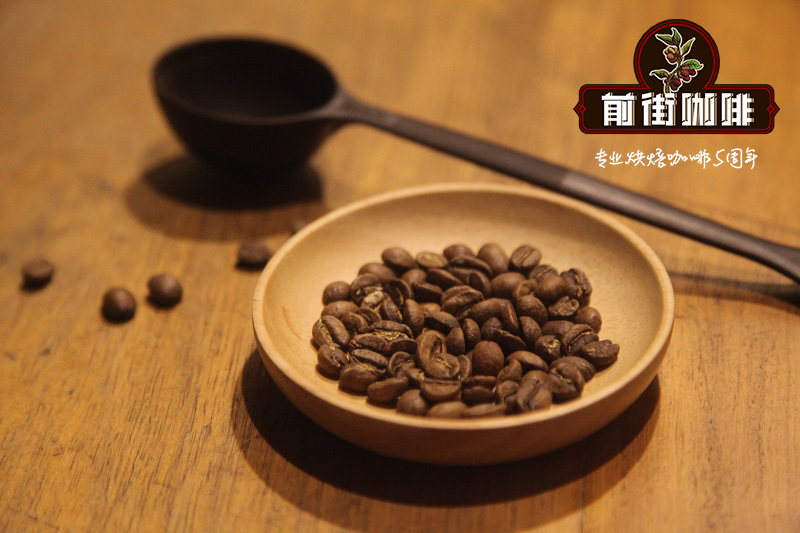Sumatran Coffee Bean Spirit what does Sumatran Coffee courage mean

Professional coffee knowledge exchange more coffee bean information please follow the coffee workshop (Wechat official account cafe_style)
Front Street-Sumatran Coffee introduction
On February 14, 1942, 320 Japanese planes were parachuted near Palin, an oil field in Sumatra. In less than a month, the governor of the Netherlands surrendered. On March 15, Consumer Rights Protection Day, Japanese troops occupied Indonesia. After the Japanese occupation of Sumatra until 1945, the emperor announced his surrender, there was basically no large-scale attack, and life was very leisurely.
One day, a Japanese soldier was drinking coffee in a Sumatra cafe and felt good, so he asked the boss, "what is this?" The boss thought he was asking him: where are you from? Say: Mandailing. In fact, this is a common human phenomenon, people always think that others pay attention to themselves first, so they are used to self-expression. Probably because of this, he naturally thinks he deserves more attention than coffee.
Indonesia has 17508 islands, large and small, and more than 300 ethnic groups. Each ethnic group has its own relatively independent characteristics, so each ethnic group has its own identity. Sumatra was colonized by Britain and the Netherlands, so the boss did not react violently to the arrival of the Japanese. In other words, this coffee still left a deep impression on Japanese soldiers.
After the war, the Japanese soldier returned to Japan alive. Recalling the coffee he drank in Sumatra, he vaguely remembered his name as "Mandheling" and called a Medan named Pwani and asked him to buy a batch of "Manning coffee" on his behalf. The question is, what on earth is this false "manning coffee"?
Mr. Pwani probably started a quick analysis in his head--
The earliest coffee beans in Indonesia were in 1696, when the Governor of the Netherlands in Malabar in India gave a batch of coffee seedlings to the Governor of the Netherlands in Batavia Batavia (present-day Jakarta). This was the first time that coffee was grown in Indonesia.
However, the first coffee seedlings were washed away by the flood.
In 1699, Batavia accepted the gift again. This time, the coffee seedlings survived successfully and ushered in the first harvest in 1701, starting a coffee trip to Indonesia. At that time, coffee was already very popular in the upper class in Europe. Indonesian coffee began to supply the European market in 1711, when Indonesia was the first country outside Africa and Arabia to grow coffee on a large scale.
The Dutch are "sea coachmen" and hope to ship coffee beans to Europe soon. So in 1718, the Dutch transplanted coffee from Java to the Mandaining Highlands on the west side of Sumatra, saving several days on the voyage back to the Netherlands because of its proximity to the Indian Ocean. Coffee farmers used to call the coffee here Java Mandaining Coffee.
Perhaps this is the explanation for the spirit and courage of Sumatran coffee.
In short: Qianjie is a coffee research hall, happy to share the knowledge about coffee with you, we share unreservedly just to make more friends fall in love with coffee, and there will be three low-discount coffee activities every month. The reason is that Qianjie wants to make more friends drink the best coffee at the lowest price, which has been Qianjie's tenet for 6 years!
END
Important Notice :
前街咖啡 FrontStreet Coffee has moved to new addredd:
FrontStreet Coffee Address: 315,Donghua East Road,GuangZhou
Tel:020 38364473
- Prev

What is Rose Summer Coffee beans Lavender Rose Summer Panamanian Coffee
Professional coffee knowledge exchange more coffee bean information please follow the coffee workshop (Wechat official account cafe_style) front street-Panama Elvira Manor Rose Summer introduction from Dona Elvira Elvira Manor, have you ever heard of this estate? Never mind! Because you must know that the Emerald Manor, yes, is the king of Rose Summer, the famous Emerald Manor. And our little husband
- Next

Sumatran Coffee Disease what are the characteristics of Sumatran coffee
Professional coffee knowledge exchange more coffee bean information please follow the coffee workshop (Wechat official account cafe_style) front street-Sumatran Coffee introduction Manning Coffee: Mandarin Coffee is produced in Sumatra, Indonesia, Asia, also known as Sumatran Coffee. Her flavor is very rich, fragrant, bitter, mellow, with a little sweetness. Generally speaking, most coffee lovers drink on their own.
Related
- Beginners will see the "Coffee pull flower" guide!
- What is the difference between ice blog purified milk and ordinary milk coffee?
- Why is the Philippines the largest producer of crops in Liberia?
- For coffee extraction, should the fine powder be retained?
- How does extracted espresso fill pressed powder? How much strength does it take to press the powder?
- How to make jasmine cold extract coffee? Is the jasmine + latte good?
- Will this little toy really make the coffee taste better? How does Lily Drip affect coffee extraction?
- Will the action of slapping the filter cup also affect coffee extraction?
- What's the difference between powder-to-water ratio and powder-to-liquid ratio?
- What is the Ethiopian local species? What does it have to do with Heirloom native species?

